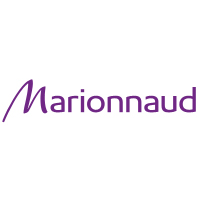The Change of Fintech: Changing the Financial Landscape

Recently, the monetary services sector has actually undertaken a profound makeover driven by the increase of economic modern technology, or fintech. From mobile repayment solutions to blockchain innovation, fintech developments are improving exactly how people and companies manage their finances, invest, and conduct purchases. In this write-up, we'’ ll explore the change of fintech, analyzing its impact on the typical economic landscape and the opportunities it offers for the future.
The Introduction of Fintech
The term « » fintech » » includes a wide range of technical developments that intend to boost and automate the delivery of economic services. Fintech solutions take advantage of sophisticated technologies such as artificial intelligence (AI), artificial intelligence, blockchain, and huge data analytics to improve performance, openness, and accessibility in financing.
The roots of fintech can be traced back to the very early 2000s with the development of online banking and electronic payment systems. However, it wasn'’ t until the past years that fintech obtained considerable grip, driven by aspects such as:
read about it Dice Game EOS from Our Articles- Innovations in Technology: The spreading of smart devices, high-speed net, and cloud computer has actually equalized accessibility to economic services and led the way for cutting-edge fintech options.
- Altering Customer Behavior: Millennials and Gen Z, who are digital locals, have actually embraced fintech platforms for their benefit, versatility, and straightforward user interfaces. This group change has sped up the fostering of fintech services worldwide.
- Regulative Support: Governments and regulatory bodies worldwide have acknowledged the possibility of fintech to drive financial addition and economic growth. Initiatives such as open banking regulations and sandboxes have actually fostered a conducive setting for fintech development.
Key Trends Shaping the Fintech Landscape
Several fads are driving the advancement of fintech and reshaping the monetary services industry:
- Digital Settlements: The surge of electronic repayment remedies, including mobile budgets, peer-to-peer repayment applications, and contactless settlement innovations, has revolutionized just how consumers and services negotiate. Fintech firms such as PayPal, Square, and Stripe have originated ingenious settlement platforms that offer speed, safety, and convenience.
- Blockchain and Cryptocurrency: Blockchain innovation, the underlying innovation behind cryptocurrencies like Bitcoin and Ethereum, has the possible to interfere with standard financial systems by making it possible for secure, clear, and decentralized transactions. Fintech start-ups are leveraging blockchain for applications varying from cross-border remittances to wise contracts and decentralized money (DeFi).
- Robo-Advisors: Robo-advisors are automated investment platforms that make use of formulas to give personalized investment suggestions and portfolio management solutions. These platforms use lower fees, higher ease of access, and data-driven investment methods, attracting tech-savvy financiers seeking choices to traditional monetary advisors.
- Alternate Borrowing: Fintech has actually democratized access to capital by enabling peer-to-peer lending, crowdfunding, and alternative credit history versions. Systems like LendingClub, Prosper, and Kiva facilitate lendings for people and small companies, bypassing standard banks and financial institutions.
- Regtech and Conformity Solutions: Regulatory innovation, or regtech, is leveraging AI, artificial intelligence, and data analytics to streamline compliance processes, reduce threats, and improve regulatory openness. Fintech start-ups are developing solutions to aid banks abide by evolving laws such as Know Your Consumer (KYC), Anti-Money Laundering (AML), and General Data Security Law (GDPR).
The Future of Fintech: Opportunities and Difficulties
As fintech continues to disrupt and introduce, it presents numerous possibilities and challenges for stakeholders across the monetary environment:
- Financial Addition: Fintech has the prospective to increase accessibility to financial solutions for underserved populations, consisting of the unbanked and underbanked. By leveraging mobile modern technology and electronic platforms, fintech firms can get to people in remote locations and emerging markets, equipping them with economic devices and services.
- Cybersecurity and Data Personal Privacy: With the growing volume of electronic deals and sensitive economic data, cybersecurity and information personal privacy remain vital concerns for fintech companies and their consumers. Structure durable safety protocols, carrying out encryption procedures, and sticking to governing standards are essential to safeguarding against cyber threats and data violations.
- Regulative Conformity: Fintech startups operate in a very controlled setting, subject to compliance needs and oversight from regulatory authorities. Browsing intricate regulatory landscapes and ensuring adherence to governing requirements present obstacles for fintech firms, calling for aggressive risk management and legal experience.
- Technological Technology: Constant technical technology is both a driving pressure and a competitive advantage in the fintech industry. Fintech start-ups must stay abreast of emerging technologies, purchase r & d, and cultivate a society of technology to remain competitive and satisfy evolving customer needs.
- Collaboration vs. Disturbance: The connection in between fintech startups and conventional financial institutions is advancing from competitors to cooperation. While fintech firms at first interrupted traditional banking models, several are currently partnering with established financial institutions to co-create cutting-edge solutions and utilize their expertise, facilities, and client base.
Finally, the change of fintech is reshaping the financial solutions market, driving development, and changing how people and companies handle their funds. From electronic settlements and blockchain modern technology to robo-advisors and alternative loaning, fintech developments are democratizing accessibility to monetary services, promoting financial inclusion, and promoting financial empowerment. As the fintech environment continues to develop, stakeholders must browse regulatory difficulties, address cybersecurity problems, and embrace technical improvements to maximize the chances provided by this transformative sector.





















































































































































































































